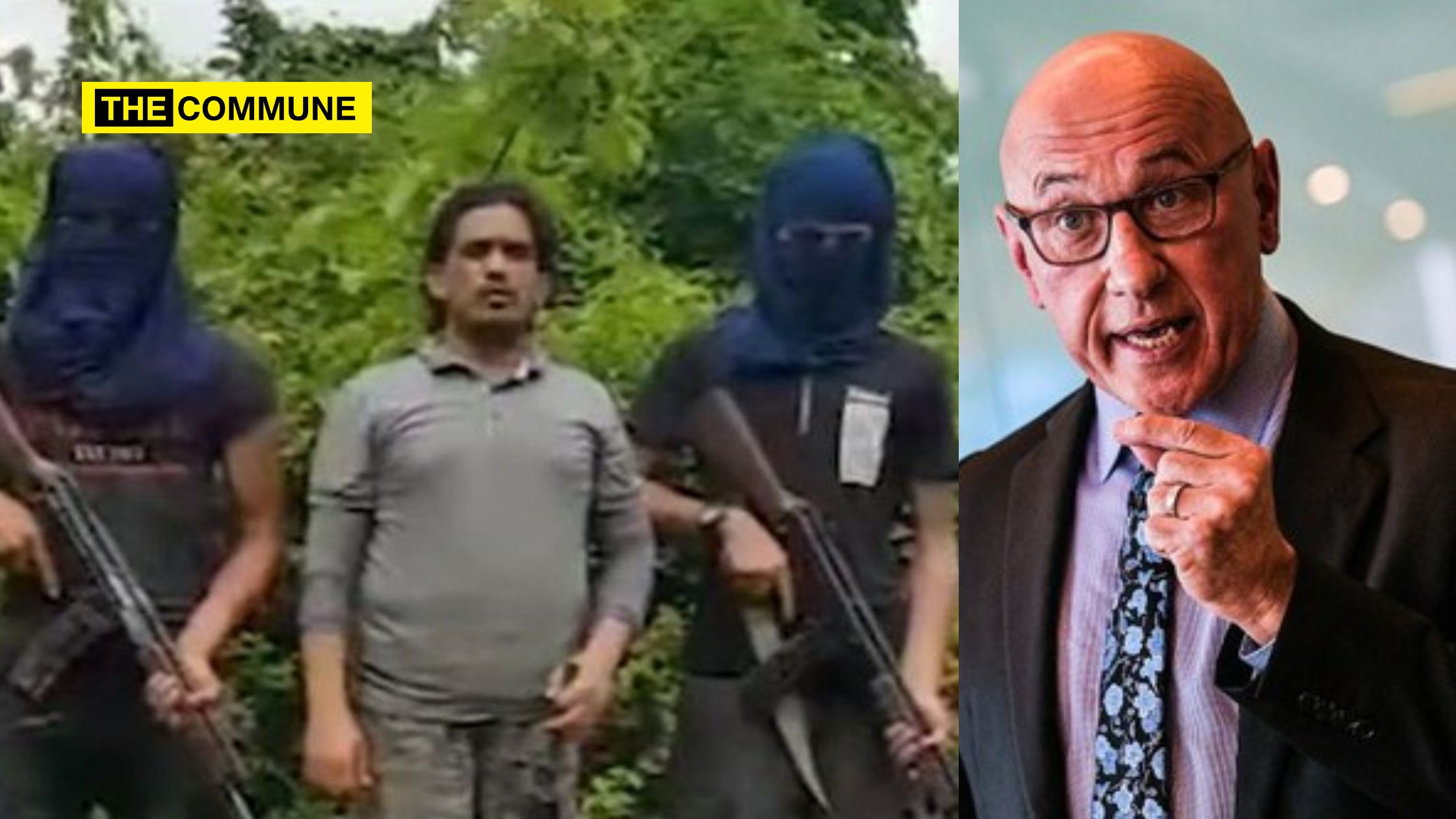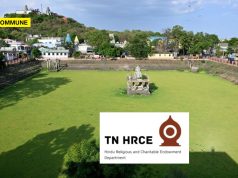
On 26 October 2022, Tom Andrews, the UN Human Rights expert on Myanmar, said that the extremist Rohingya organisation that has been involved in the massacre of Hindus in Myanmar should be apprehended and held accountable.
Asked at a news conference on Wednesday, about the attacks on Hindus by the Arakan Rohingya Salvation Army (ARSA) that has been documented by Amnesty International, the Special Rapporteur on the Situation of Human Rights in Myanmar, Tom Andrews, said, “We need to make certain that there’s a full execution of the of the law when it comes to apprehending these individuals.”
“There are radical groups that we know of that are in many, many communities, including the Rohingya community,” he said, “we know that they have been responsible for some heinous crimes and I call them out.”
“It’s my view, regardless of who you are, in any of these issues or conflicts you have a fundamental responsibility to respect human rights, including organisations such as ARSA,” Tom Andrews, who is also a former member of the U.S Congress, said.
On 25 August 2017, Hindu villages in a cluster known as Kha Maung Seik in the northern Maungdaw District of Rakhine State in Myanmar were attacked and 99 Bengali Hindu villagers were massacred by Muslim insurgents from the Arakan Rohingya Salvation Army (ARSA). A month later, the Myanmar Army discovered mass graves containing the corpses of 45 Hindus, most of whom were women and children.
An Amnesty International investigation confirmed that “up to 99 Hindu women, men, and children” had been massacred by muslim militant ARSA fighters, who also abducted Hindu villagers in August 2017 in Myanmar’s Rakhine State.
ARSA is led by Pakistan born ( Karachi-born ) Ata Ullah abu Ammar Jununi. Both Myanmar authorities as well as International Investigators of repute, blamed ARSA for the brutal massacre of the minority Hindus in Myanmar. While the Myanmarese authorities were preoccupied with ARSA’s insurgent operations at the time, Kyaw Zaw Oo, a Rakhine State Hluttaw MP, investigated the massacre and posted a detailed account on his Facebook page on 13 September 2017. He was one of the first to alert domestic and international communities about the massacre. The militant ARSA has denied responsibility and even rejected Amnesty’s report.
“Our latest investigation on the ground sheds much-needed light on the largely under-reported human rights abuses by ARSA during northern Rakhine State’s unspeakably dark recent history,” said Amnesty International Crisis Response Director Tirana Hassan.
She also stated, ″It’s hard to ignore the sheer brutality of ARSA’s actions, which have left an indelible impression on the survivors we’ve spoken to. Accountability for these atrocities is every bit as crucial as it is for the crimes against humanity carried out by Myanmar’s security forces in northern Rakhine State … In this brutal and senseless act, members of ARSA captured scores of Hindu women, men, and children and terrorised them before slaughtering them outside their own villages. The perpetrators of this heinous crime must be held to account″.
The reiteration and confirmation by international authorities, of the brutal murder of Hindus by militant Muslims in Myanmar, comes at a time when the “liberal-secular” lobby in India, is asking for special privileges for the thousands of Rohingya Muslim refugees now living in the country. The BJP government has stated that the refugees pose a security threat to India, amidst reports of radical muslim outfits from Bangladesh and Pakistan attempting to indoctrinate the muslim Rohingya refugees currently residing in refugee camps in India.
Background
Bengali Hindus constitute a minority group in Maungdaw District. With a population of around 5,000, they constitute about 1% of the population in Buddhist majority Myanmar (erstwhile Burma). They can trace their presence in Myanmar back to the middle ages, when they were first brought to the kingdom by the Arakanese kings themselves. The Myanmar government makes an official distinguision between the Hindus and the Rohingya Muslims who trace their more recent presence in Myanmar, back to present day Bangladesh.
According to eyewitness accounts, on 25 August 2017, unidentified men in black masks attacked the Hindu villages in Kha Maung Seik also known as Fwaira Bazar or Fakira Bazar.They objected to the official identity cards provided to the Hindus by the Myanmar authorities.
The masked men took around 100 people hostage and forced them to march through the fields. They were led into a forest on a hill, where the insurgents separated eight fair skinned women from the group of hostages, allegedly to set them aside for marriage to the muslim insurgents later. The insurgents then blindfolded the remaining captives, tied their hands behind their back and tied their legs. Witnesses were horrified to see the throats of the hostages slit with machetes and knives. The corpses were dumped inside three pits which were dug by the insurgents.
Nine Hindu villages were burnt, resulting in more than 500 Hindu refugees fleeing across the border to Bangladesh. The Hindu villages of Kyeinchaung and Ngakhuya survived the arson attacks, and the villagers have since returned.
Following the massacre, hundreds of Hindu families along with the Rakhines fled the rural areas to take shelter in Sittwe. More than 500 Hindus took shelter in four Hindu temples in Sittwe and were partially supported by the Myanmar government relief team. Many Hindus also took refugee in Buddhist monasteries in Ponnagyun and Kyauktaw townships.
Forced Conversions
Ni Maul, a Hindu leader who helped Myanmar’s authorities with the search of the bodies, told the media that the mass-graves were found from testimony of eight Hindu women whose lives were spared and brought to Bangladesh after they agreed to convert to Islam.
Four Hindu women in Bangladesh told Agence-France Presse, that they were among the eight who escaped. They stated that they were forced to marry the muslim attackers in order to save their lives and they were later taken to camps of Rohingya Muslims in Bangladesh.The Hindu women stated that the militants found them beautiful and decided to convert them. The eight women along with children were later taken to a house in Bawtalar village where they were forced to eat rice with meat, which is against some Hindu beliefs. They were then brought to Kutuparlaung refugee camp on 28 August where they were housed with Muslims and forced to wear burqas.
Current Predicament
The Hindu refugees are scared of going back to their native places in the Rakhine State of Myanmar and at the same time fearful of staying in refugee camp in Muslim-majority Bangladesh. Instead, they hoped for rehabilitation in Hindu-majority India.
The Vishwa Hindu Parishad leadership expressed that India was the natural homeland for the Hindu refugees from Myanmar. The Vishwa Hindu Parishad along with the Rashtriya Swayamsevak Sangh intended to submit a report to the Indian Home Ministry demanding a new policy that would allow Hindus of Bangladesh and Myanmar to seek asylum in India.
(With inputs from Hindu Post)
Click here to subscribe to The Commune on Telegram and get the best stories of the day delivered to you personally.




